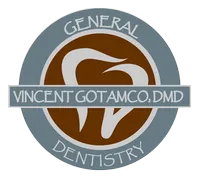Pre-Medication- New guidelines
The latest guidelines of the American Heart Association (AHA) bring good news: the AHA recommends that most patients with heart conditions no longer need short-term antibiotics as a preventive measure before their dental treatment.
The guidelines are based on a growing body of scientific evidence which shows that the risks of taking preventive antibiotics outweigh the benefits for most patients. Scientists also found no compelling evidence that taking antibiotics prior to a dental procedure prevents infective endocarditis (IE) in patients who are at risk of developing a heart infection. IE is an infection of the heart’s inner lining or valves, which result when bacteria enter the bloodstream and travel to the heart. Bacteria normally are found in various sites of the body, including on the skin and in the mouth.
Patients who have taken prophylactic antibiotics routinely in the past but no longer need them include people with:
- · Mitral valve prolapsed
- · Rheumatic heart disease
- · Bicuspid valve disease
- · Calcified aortic stenosis
- ·
Preventive antibiotics prior to a dental procedure are still advised for patients with:
- · Artificial heart valves
- · A history of infective endocarditis
- · A cardiac transplant that develops in a heart valve
-
·
Certain specific, serious congenital (present from birth) heart conditions, including:
- · Unrepaired or incompletely repaired cyanotic congenital heart disease, including those with palliative shunts and conduits;
- · A completely repaired congenital heart defect with prosthetic material or device, whether placed by surgery or by catheter intervention, during the first six months after the procedure;
- · Any repaired congenital heart defect with residual defect at the site or adjacent to the site of a prosthetic patch or prosthetic device.
If you have any of the conditions on the second list, or if you are taking new or different medicine since your last dental appointment, please let me know as soon as possible. I may need to update your medical records and contact your physician or cardiologist to determine which antibiotics you should take before your next dental visit.
If you have any question, please feel free to contact my office. I would also be happy to discuss this information with your personal physician if you wish. I look forward to seeing you soon.
